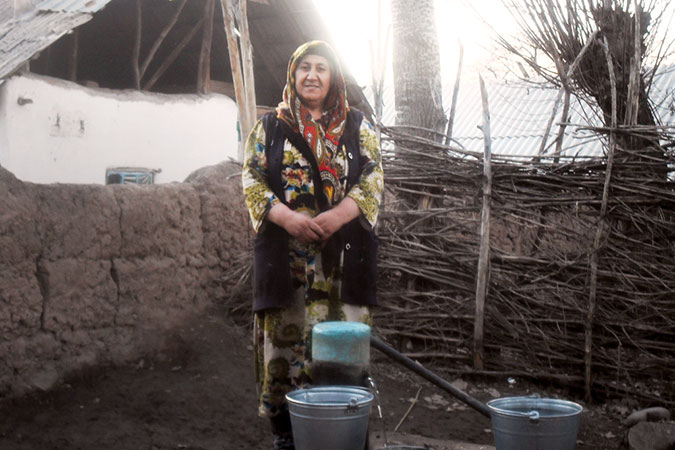From where I stand: Surayo Mirzoyeva
Date:

"We drank water from the same pond as the livestock and there have been frequent cases of infectious diseases. Many people in our region have lived without clean drinking water for many years and had very little hope that things would ever change. We prayed for rain to come so that we can collect and use rainwater. Our produce did not grow because there was no water to irrigate. Women had to walk for hours to fetch water from the river.
After my husband was killed in Russia, I had to take care of everything on my own. I have five children and I needed to bathe them, wash their clothes and cook for them. How many gallons of water can a woman carry each day? What we had was never enough.
Our village also did not have drinking water until recently when a group of women, including myself, decided to take matters into their own hands and change things for the better. In 2014, with the help of some NGOs, we brought clean water to our village. I formed a self-help group with some friends and we won a grant for USD 87,000 to bring 14 km of water pipes to our village. We mobilized all of the villagers who worked day and night on the water pipes. We finally brought water to our village!
This was a small victory for us. We want to do more to improve our lives. We have plans to create a mini-farm and build small greenhouses. We are confident that we will succeed.”
Surayo Mirzoyeva, 41, took part in a self-help group supported by the UN Women project “Empowering abandoned wives of migrant workers in Tajikistan,” which has provided more than 3,000 villagers in Fathobod, Tajikistan, with clean drinking water. Sustainable Development Goal 6 seeks to ensure universal and equitable access to safe and affordable drinking water for all.